Directors – Chen Kaige, Dante Lam, Tsui Hark – 2021 – China – Cert. 15 – 176m
*****
Chinese war movie which has barnstormed the global box office does exactly what it says on the tin – out in cinemas on Friday, November 19th
There is a history of war films with a cast of thousands being directed by several (usually three) directors in an attempt to portray campaigns with huge military logistics on the screen. Probably the best known are The Longest Day (Ken Annakin, Andrew Marton, Bernard Wicki, 1962) about the World War Two Allied invasion of Normandy and Tora! Tora! Tora! (Richard Fleischer, Toshio Matsuda, Kinji Fukasaku, 1970) about the Japanese attack on Pearl Harbour. Both of those Western (and, as it happens, Twentieth Century Fox) movies presented both sides of the conflict by hiring directors from the different countries concerned.
The big difference between them and Chinese global box office phenomenon The Battle At Lake Changjin is that although the latter film deals with a conflict in which the Chinese are pitted against the Americans, all three directors are Chinese. Tsui (Zu Warriors, 1983; Once Upon A Time In China, 1991) at least has some working knowledge of America, having studied film in Texas. Of the other two, Kaige is known to Western audiences from such art house fare as Farewell My Concubine (1993), while Lam is, like Tsui, a stalwart of Hong Kong action cinema (The Stool Pigeon, 2010; Operation Mekong, 2016).
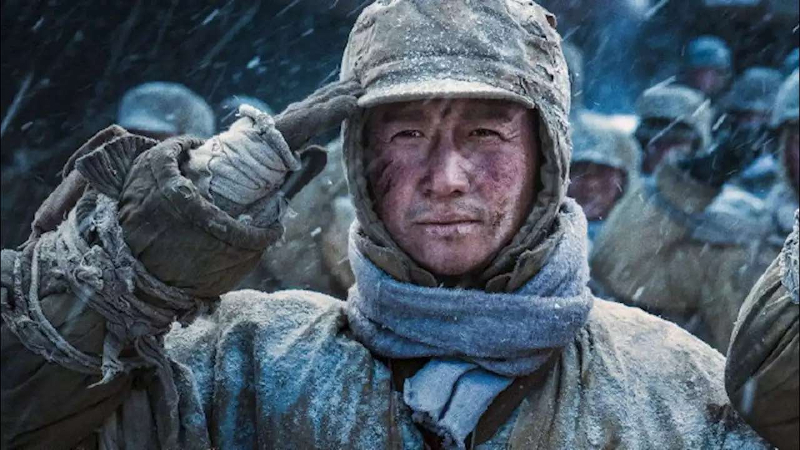
The film follows Chinese troops and their military engagements but makes scant attempt to show the situation from the opposing side. (Although perhaps due to Tsui’s involvement, the few American characters shown feel a lot more convincing than those in many Chinese films, even if they are somewhat hampered by scripted dialogue that feels as if it were written in Chinese then translated into English. They don’t feel like Americans so much as like a Chinese idea of how Americans must think. This has much to do with spoken and written language: Chinese and English are a long way apart, and to think and reason in one of those languages is a very different process from doing so in the other. This fact is pretty obvious if you watch a lot of Chinese – or South East Asian – movies and a lot of US – or Western – movies.
The theatre of war here is the Korean War, the direct result of the partitioning of Korea into North (communist) and South (capitalist) territories late in World War Two. Neither side recognised the other. The UN and the US supported the South whilst Russia and China supported the North. The North invaded the South in 1950 and looked set to succeed militarily until General Douglas MacArthur attacked the West coast at Incheon (see South Korean film Operation Chromite, John H. Lee, 2016) and pushed back the North Korean forces. Concerned about the advancing Southern forces, China sent in the People’s Liberation Army (PLA), rebranded as the People’s Volunteer Army (PVA), to repel the potential invaders at its borders.
As the current film is swift to remind us several times, doing so scuttled MacArthur’s plan that “the war would be over by Christmas”. The US forces retreated, locking North and South Korea into a stalemate which resulted in the creation of the Demilitarised Zone between the North and the South in 1953.
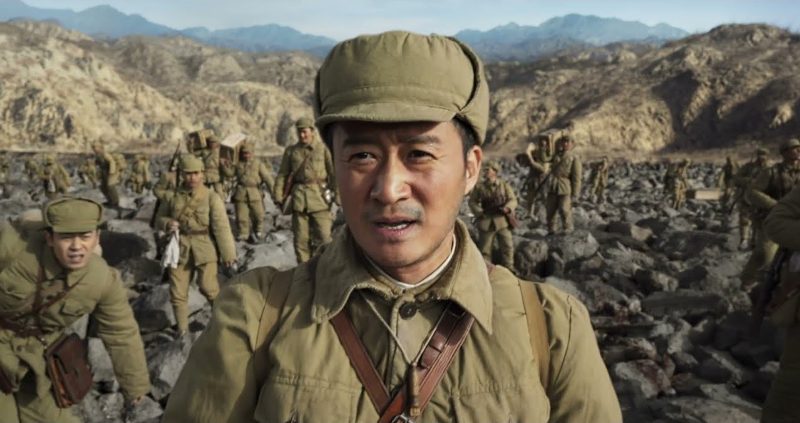
The film doesn’t really go into the background politics or even the finer points of the military campaign in any great depth. In this sense it’s much less impressive than The Eight Hundred (Guan Hu, 2019), but compensates elsewhere, setting out to follow a particular unit on the ground and its involvement in the conflict.
After an arresting opening sequence in which the underwater camera traverses a submerged graveyard of planes and tanks – presaging what is to come in terms of close and distant vistas realised by CGI effects with no expense spared (there’s no danger of ruining the effects by cost conscious budgetary concerns here, as happened on British / Polish low budget WW2 effort Hurricane, David Blair, 2018) – we meet a man travelling home on a small boat. Wu Qianli (Wu Jing from The Wandering Earth, Frant Gwo, 2019, and sequels) has come home on leave from commanding some 150 soldiers in the 7th Company of the PVA, bringing news of his brother who was killed in combat. He’s greeted with enthusiasm (the throwing of rocks at the boat from the shore!) by his little brother “Little Bun” aka Wu Wanli (Jackson Lee). Qianli tells the eager-to-enlist Wanli that one brother dead is enough and that he should stay home with their parents.
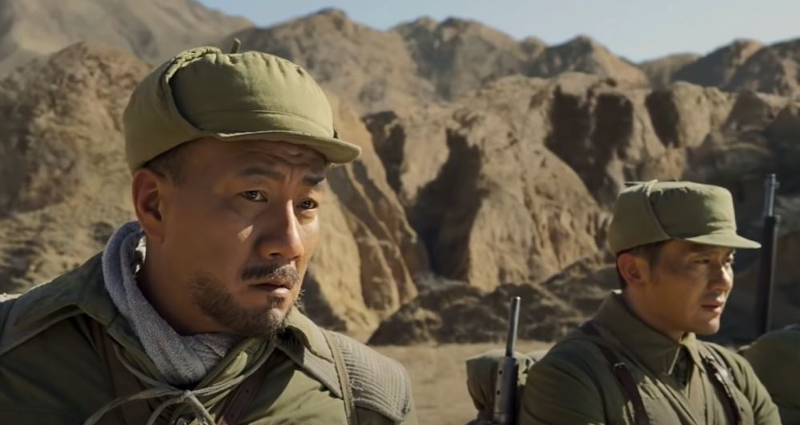
This sequence, an homage to (probably idealised) Chinese rural life, is the only one like it here. I would hazard a guess it was handled by Kaige given that it delivers the required dramatic punch and grounds all the military sequences which follow in solid emotion because we’ve invested something in the fates of these two characters. Without it, everything else would be far less powerful.
However no sooner has Qianli arrived, it seems, than a soldier is going round the village houses announcing “all leave is cancelled” and calling Wu Qianli’s name. So soon he’s back on a train to the frontline.
If you’re well-versed in the minutiae of the history, scenes are helpfully split up by (Western numeric) dates. While I recommend seeing the film on the biggest cinema screen you can find, if and when it comes out on Blu-ray or DVD, these will provide helpful moments at which to pause the film and look up historic dates to see how accurate (or otherwise) the military events portrayed here are.
So, for example, a ‘1950 9 15’ title presages a CG shot travelling through the US fleet at Incheon with the camera closing in on then pulling out from General MacArthur (James Filbird) and a handful of officers on a ship’s bridge. Perhaps this moment shows the film at its worse: the shot is there because it can be done if time and money are no object, but it feels like an FX technician’s dream which would benefit from one of the directors suggesting something a little less clichéd as it undermines everything else that’s going on. This is a blip, because most of the time, CG shots and camera moves feel far more appropriate and consequently effective than this one.
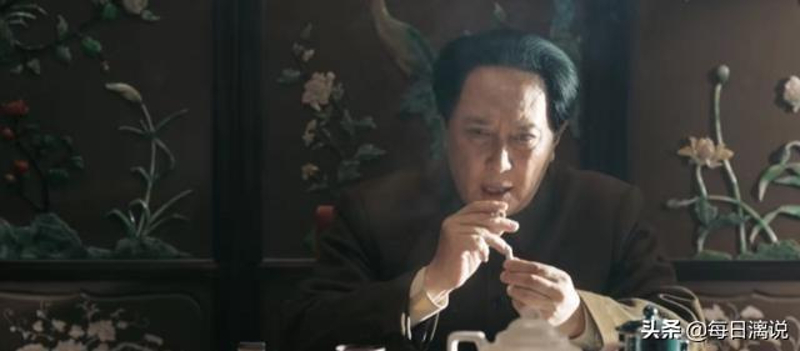
After some historical plot featuring PVA Commander Peng Dehuai (Zhou Xiaobin), Chairman Mao (Tang Guoqiang) as they decide to come to the military aid of North Korea, and his deferential son Mao Anying (Huang Xuan), these plot and character references presumably put in to keep the Chinese authorities happy, we return to Qianli’s transport train and the discovery that little brother Wanli has snuck on board as a stowaway because he feels the only way he’ll ever be taken as seriously as his big brother will be if he enlists to fight.
Thus, the stage is set for the scenario of the competent commander of a unit having to look after his untrained brother, a clever device to which most audiences of whatever culture are likely to be able to relate and which drives the film narrative from here on in as it traverses various journeys and battles of the 7th company. The younger brother is initially teased by his more seasoned fellow soldiers, but is told that once he’s been in combat on the battlefield, he’ll really be a soldier just like everyone else.
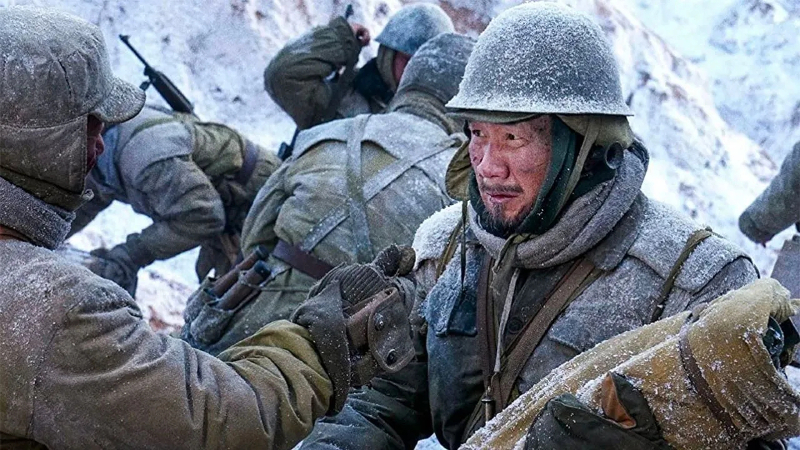
Wanli is taken under his wing by Platoon Leader Lei Suisheng (Hu Jun). Each of the members of the unit’s 150 or so men have a number denoting when they joined the company, with the numbers of those men who’ve died in battle remaining with them rather than being reallocated to new recruits. These go up to Wanli’s new number 677. Lei’s number is one of the lower ones: he’s been around a long time. Qianli carries a little notebook with the list of men in his command, arranged by these numbers. When another one of them is killed, he crosses them off in his little book.
To cut a long story short, the unit travels by train then on foot to the Chinese / (North) Korean border to attack the American enemy (who have superiority of both numbers and quality of equipment) and ultimately drive them back, at the cost of great, heroic personal sacrifice. The piece feels long at just shy of three hours, but you’ll never be bored and you’ll admire the heroism of the soldiers, which I assume is why the Chinese authorities would sanction a movie like this – one could be uncharitable and label it propaganda, but it’s hard to see that it’s any more propagandist than similarly epic Western war films of this type. Equally, one could talk about the fact that the Chinese here are essentially helping establish what will later become the horrific dictatorship of North Korea, but that seems to miss the point as it’s really all about heroism on the battlefield at the time.
Scene after scene impresses. MacArthur’s carpet bombing strategy (the Americans appear to possess far superior air power to the Chinese or North Koreans) means that at various points in the narrative, bases or troop trains disappear under a series of huge fireballs, with Chinese troops running (in an orderly fashion) for the lives.
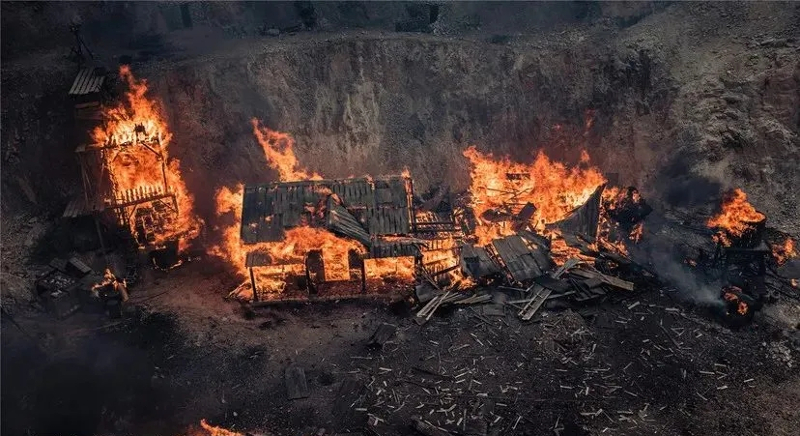
Perhaps the stand-out scene from the whole film occurs when the unit, travelling cross-country over a mountainous region, must lie still to avoid being spotted by two American scout planes. This works. But then, in a composition where the two US pilots are added in little boxes on the left and right of the top of the screen, the two airmen converse and decide to do a gun run on the empty mountain region while they’re there. As they do so, they unwittingly annihilate a number of the unit’s hidden, camouflaged soldiers, a clearly emotionally scarring process for those that survive.
The (mostly CGI) effects include a considerable amount of gore, blood and guts, in line with the Chinese idea that it’s okay to show violence no matter how graphic or extreme as long as no-one discusses any political issues that differ from the official line. If you can cope with that level of violence, through, it’s enthralling stuff. (Interestingly, the public preview I attended, at which the audience included a high percentage of Chinese, maybe 40% of them women, no-one seemed to have a problem with the level of violence, whereas I have a feeling that in a Western audience this sort of thing would be considered a male spectacle and women would tend to stay away. Aside from the mother of the two soldiers at the start, the characters here are all male which I suspect reflects the Chinese and US fighting forces of the period.)
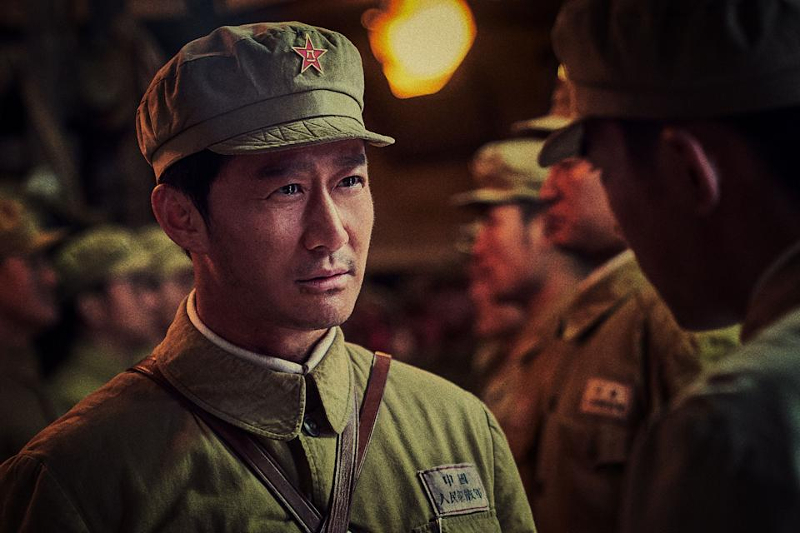
This pitches itself as a war spectacular promoting heroism, sacrifice and so on. On that level, it does exactly what it says on the tin, through characters on the ground you really care about and a series of set pieces as impressive as anything I can think of in a comparable film of this sort in the West. In short, it does what it sets out to do and does it very well. It’s not hard to see why It should have been such a huge box office success in China (and, on the strength of that, the biggest box office success worldwide so far this year). See it on the biggest screen where you can find it playing. (Did I mention this before?)
The Battle At Lake Changjin is out in cinemas in the UK on Friday, November 19th.
Trailer:
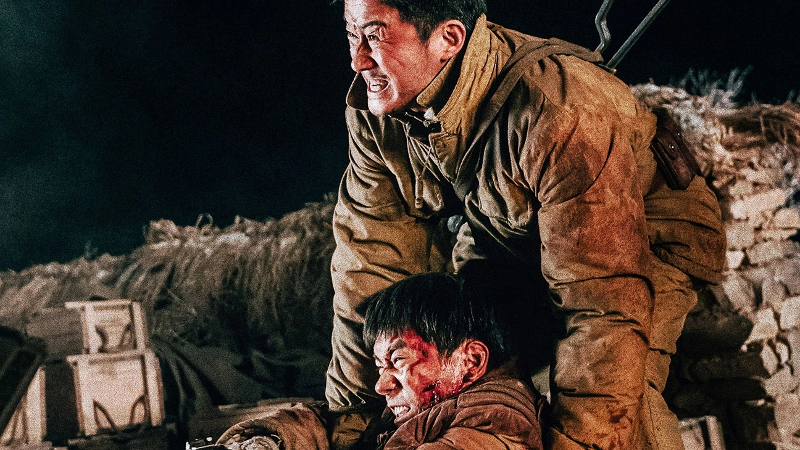
3 replies on “The Battle
At Lake Changjin
(Zhang Jin Hu,
长津湖)”
Thanks for your review Jeremy. You seem to be much more sympathetic to it than the review I saw on IMDB.
My response to the movie seems to have disappeared from my blog! I must have deleted it without knowing!
Strange! My blog entry re-appeared! I’ve added a link to your review. Blessings.
My response to the movie
https://willnewcomb.wordpress.com/2021/10/13/the-battle-of-lake-changjin/